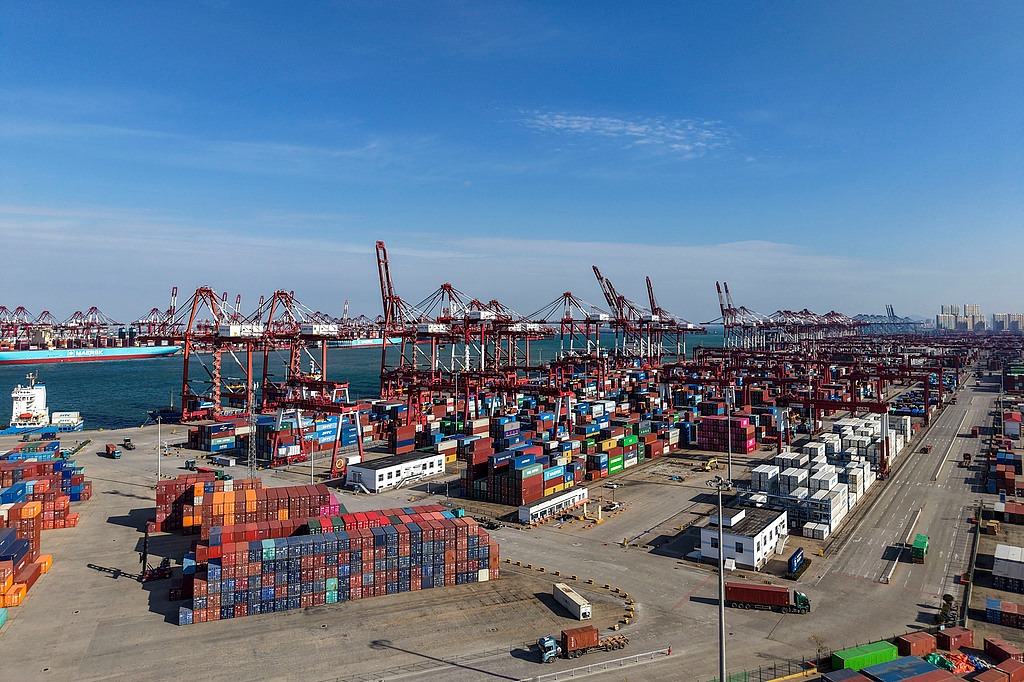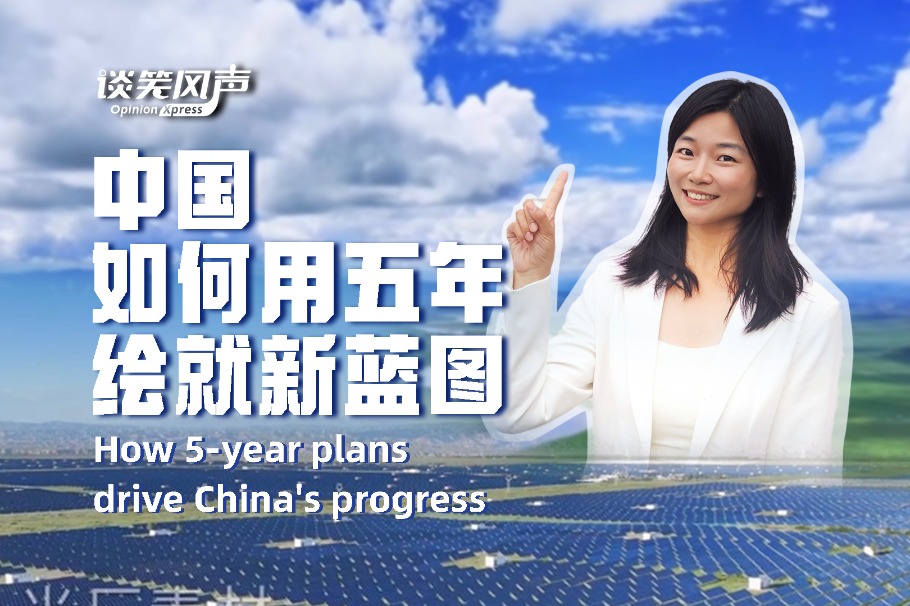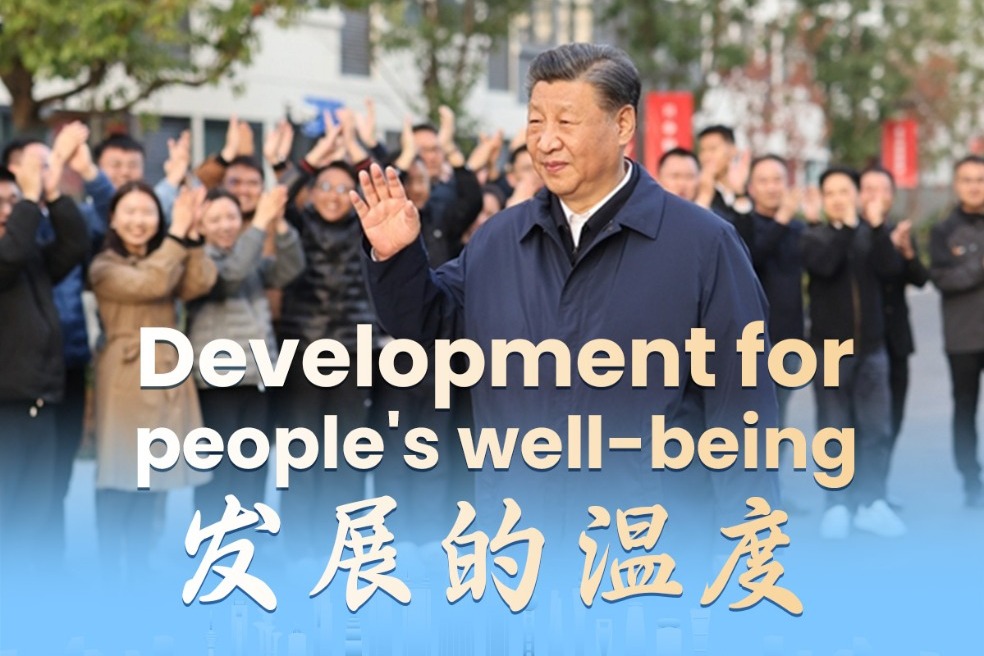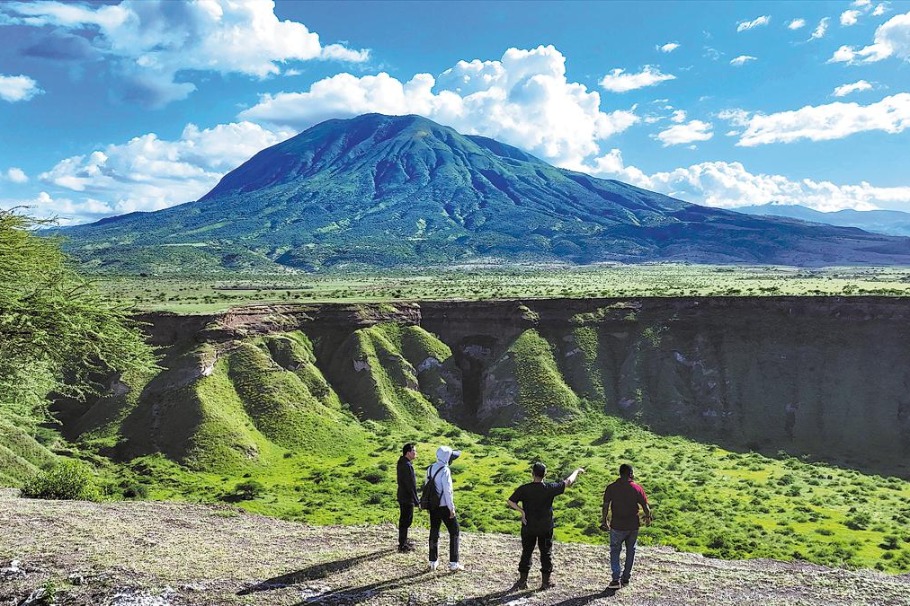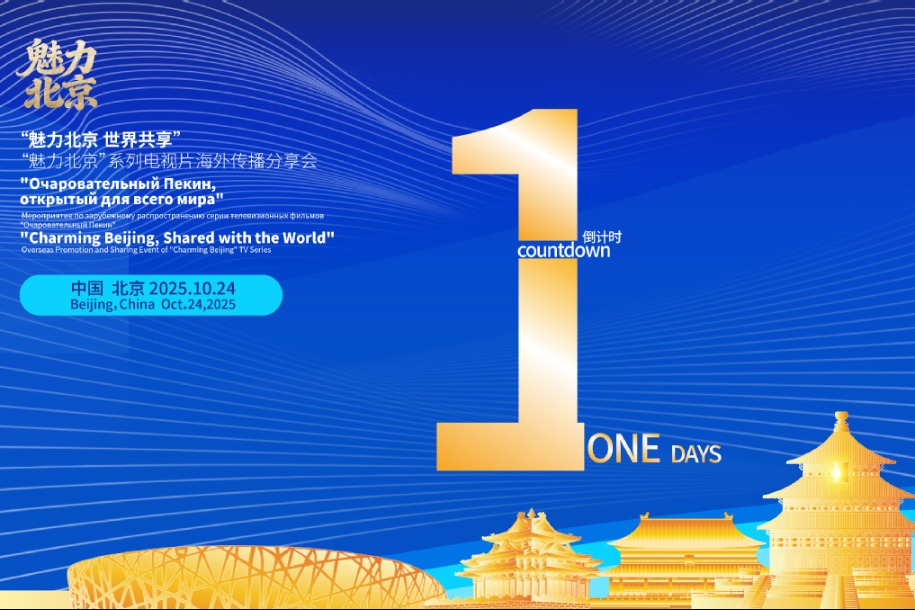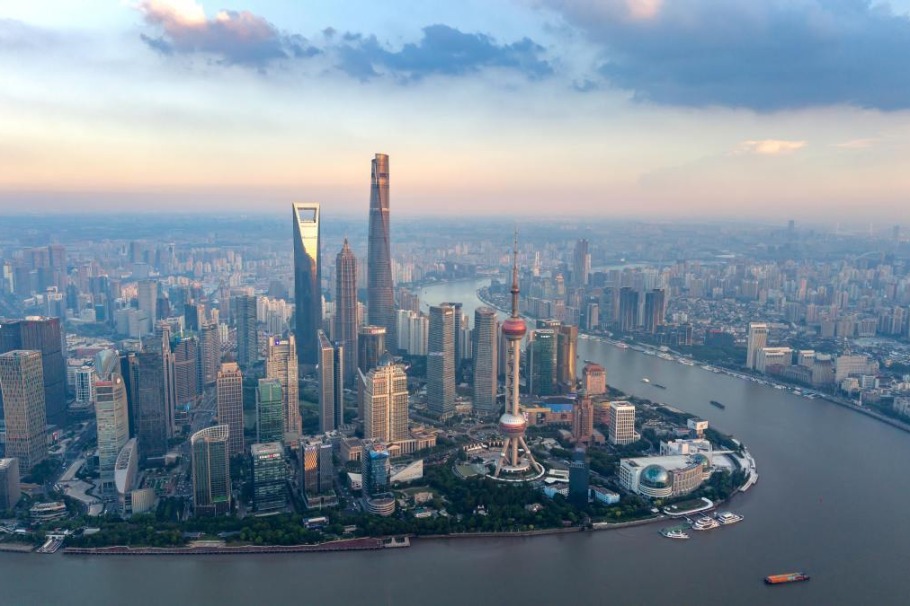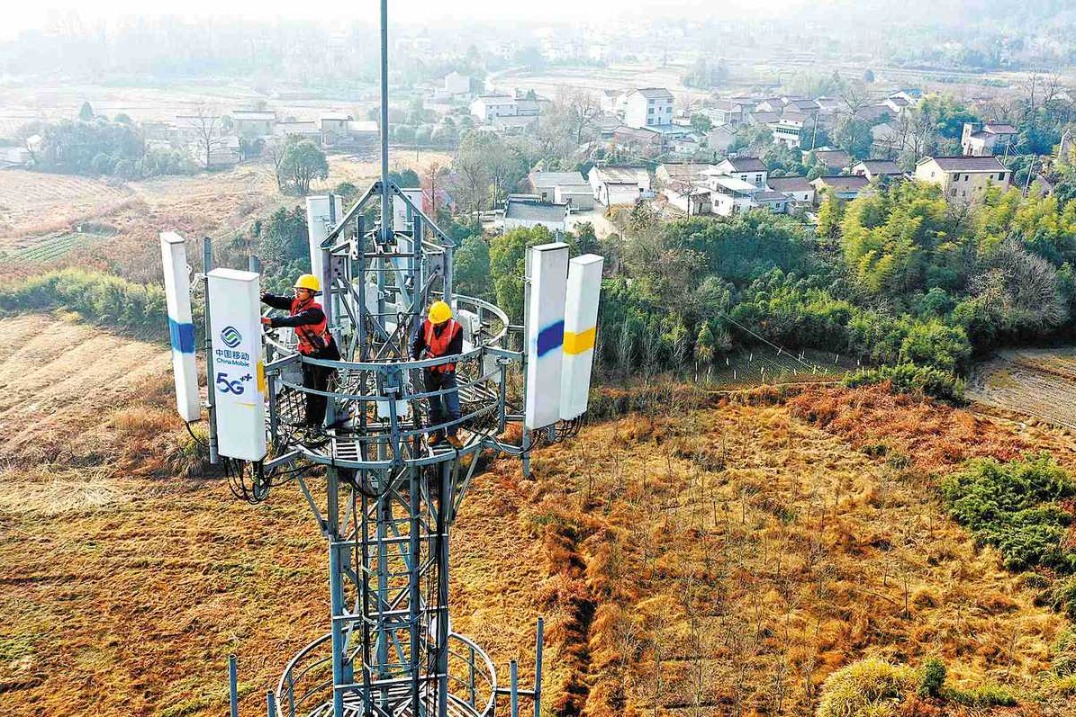Strategic necessity
Africa needs autonomous security architecture in an era of geopolitical rivalry to realize its long-term development goals

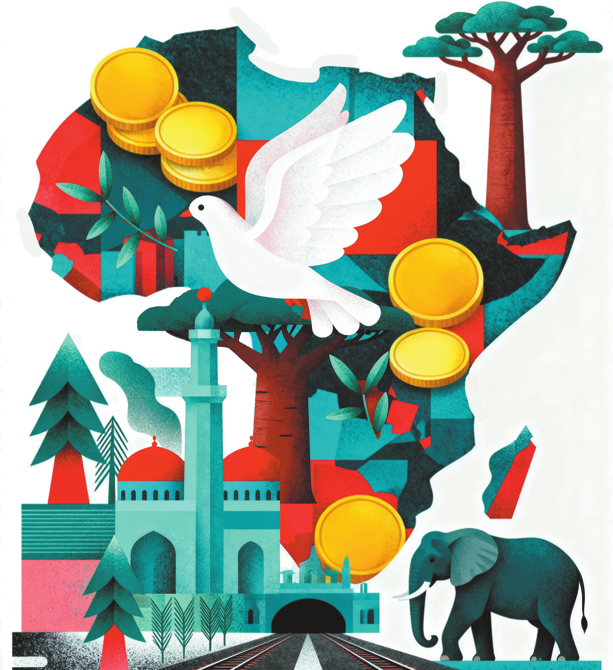
Escalating geopolitical rivalries have turned Africa into an arena where major powers vie for influence, resources and strategic partnerships. While these engagements may bring economic opportunities, they also pose serious risks, including heightened instability and the erosion of African autonomy. In this context, building a self-sufficient African Peace and Security Architecture (APSA) is no longer merely an ideal — it has also become an urgent strategic necessity.
Heightened great-power competition is exacerbating political fragmentation and conflict on the continent. This dynamic is starkly evident in the Sahel region. While deep-seated local governance issues provide the backdrop, the region's instability has been critically intensified by the reconfiguration of its foreign engagements. The drawdown of French forces created a power vacuum, which has been filled by other military entities in nations such as Mali, Burkina Faso and Niger.
This pattern of local conflicts being intensified by geopolitical rivalries is equally evident in the resurgence of the M23 insurgency in the eastern Democratic Republic of the Congo. There, the fight for critical minerals has inflamed the violence, effectively making the region a proxy war. The external backing of factions has not only hollowed out state sovereignty but also led directly to a humanitarian catastrophe. The same dynamic tragically ensnared Sudan following the 2023 outbreak of its civil war, which rapidly became a multilayered proxy conflict as foreign powers supplied their chosen sides with funds, arms and diplomatic support, thereby prolonging the agony and stymieing peace.
Beyond the battlefield, a deeper struggle over sovereignty is playing out through an unbalanced patron-client dynamic, fostered by foreign aid. This relationship shifts governments' accountability from their own citizens to external donors, undermining governance. Major Western powers pursue distinct strategies: the United States leverages the US Africa Command to secure military alignment; and the European Union employs the European Peace Facility to enforce conditional oversight. While this asymmetry might inadvertently prompt some domestic reforms, its ultimate effect is to constrain African countries' capacity to determine their own future.
In response to these challenges, the African Union has championed APSA as the cornerstone of continental self-determination. Guided by the principle of "African solutions to African problems", APSA represents a comprehensive institutional effort to consolidate strategic autonomy.
APSA is structured around five core components: the Peace and Security Council, which serves as the standing decision-making organ for crisis response and prevention; the Panel of the Wise, which mediates and advises on conflict resolution; the Continental Early Warning System, which is designed to monitor and analyze threats; the African Standby Force, which is a multinational military force intended for rapid deployment in peacekeeping, intervention and humanitarian missions; and the Peace Fund, which finances these peace and security activities.
However, despite its conceptual maturity, the African Standby Force in particular faces persistent operational hurdles. Funding shortfalls, logistical limitations, divergent political will among member states and uneven capacity across Regional Economic Communities have impeded its full operationalization. During its meeting in January, the Peace and Security Council again underscored the urgency of making the African Standby Force fully functional. Despite this, APSA remains Africa's most credible framework for achieving security autonomy.
It is crucial to distinguish among external actors. China, for instance, has introduced an alternative model centered on economic collaboration and non-interference, contrasting with traditional Western approaches that often link assistance to governance reforms or human rights benchmarks.
Based on its own development experience, China's approach to engagement emphasizes that economic growth is the foundation for lasting stability. Instead of prioritizing security interventions, it focuses on infrastructure development, trade and industrial capacity building — addressing root causes of conflict such as poverty and unemployment.
For 16 consecutive years, China has remained Africa's largest trading partner, with bilateral trade reaching $295.6 billion in 2024. This trade relationship is also becoming more balanced. Since 2005, China has implemented preferential policies such as zero-tariff treatment for certain African exports, and established "green channels" to facilitate African agricultural imports. As a result, African agricultural products have become the continent's second-largest export category to China, contributing to the economic diversification of African countries.
Under the Belt and Road Initiative, transformative projects such as the Mombasa-Nairobi Standard Gauge Railway and the Addis Ababa-Djibouti Railway have enhanced regional connectivity, created employment and stimulated industrial development. Most importantly, China's emphasis on sovereign equality allows African nations to define their own development pathways without external pressure, helping preserve policy autonomy amid great-power competition.
Despite the progress made in developing APSA and the opportunities offered by diversified partnerships, achieving meaningful strategic autonomy for Africa remains an arduous process. Several critical challenges must be addressed.
First, financial dependency threatens APSA's viability. The AU relies on external donors for approximately 75 percent of its peace and security operations, fundamentally contradicting the goal of autonomy. Although the AU Peace Fund was established to mobilize internal resources, member states contributions remain insufficient to sustain large-scale operations.
Second, political fragmentation among the 55 AU member states impedes cohesive action. Diverging national interests and threat perceptions often result in diluted collective responses, as seen in the indecisive response of the Economic Community of West African States to recent coups. Without greater unity, institutional mechanisms such as APSA cannot fulfill their potential.
Third, operational capacity gaps — particularly in strategic lift, surveillance, command systems and logistics — limit the African Standby Force's rapid deployment capability. Regional brigades remain uneven in readiness and equipment.
To navigate this complex landscape, Africa must avoid aligning with any single power and instead adopt a unified, strategic approach to external engagement. It is crucial to strengthen the AU's "one Africa, one voice" principle, which allows Africa to present a cohesive front in global forums. This unity enhances Africa's collective bargaining power and prevents division. African governments should pursue pragmatic and diversified collaborations. For example, they can engage with the US and EU on security and training, partner with China on infrastructure and trade, and explore cooperation with other partners such as Russia and India. Ultimately, all partnerships must be evaluated against African-defined priorities to ensure they reinforce, rather than undermine, sovereignty and long-term development goals.
Africa stands at a pivotal juncture in 2025. Continued dependence on external security guarantees is unsustainable, as it deepens fragmentation and compromises sovereignty. Therefore, accelerating the development of an effective, financially autonomous, and politically coherent APSA is a strategic necessity. Central to this endeavor is the operationalization of the African Standby Force. At the same time, development-focused partnerships, such as those with China, provide vital avenues for fostering stability through economic growth. By strengthening internal unity, asserting strategic autonomy and engaging external partners wisely and selectively, Africa can evolve from a geopolitical arena for major power rivalry into a confident architect of its own destiny.
The author is a professor at the Institute of West-Asian and African Studies at the Chinese Academy of Social Sciences. The author contributed this article to China Watch, a think tank powered by China Daily.
The views do not necessarily reflect those of China Daily. Contact the editor at editor@chinawatch.cn.
















